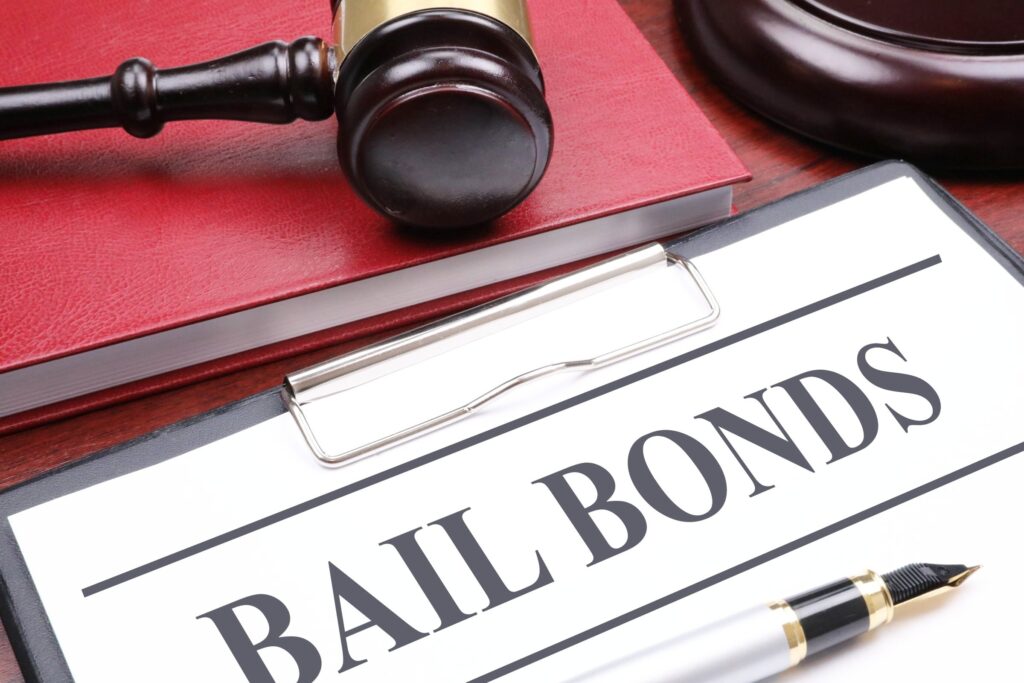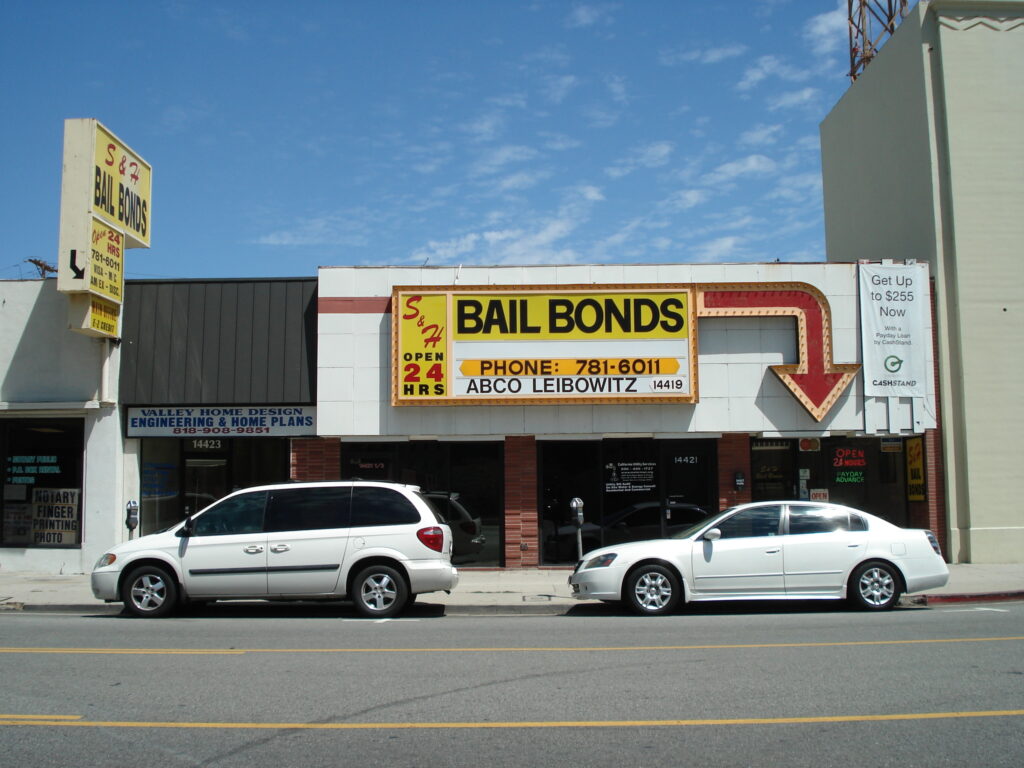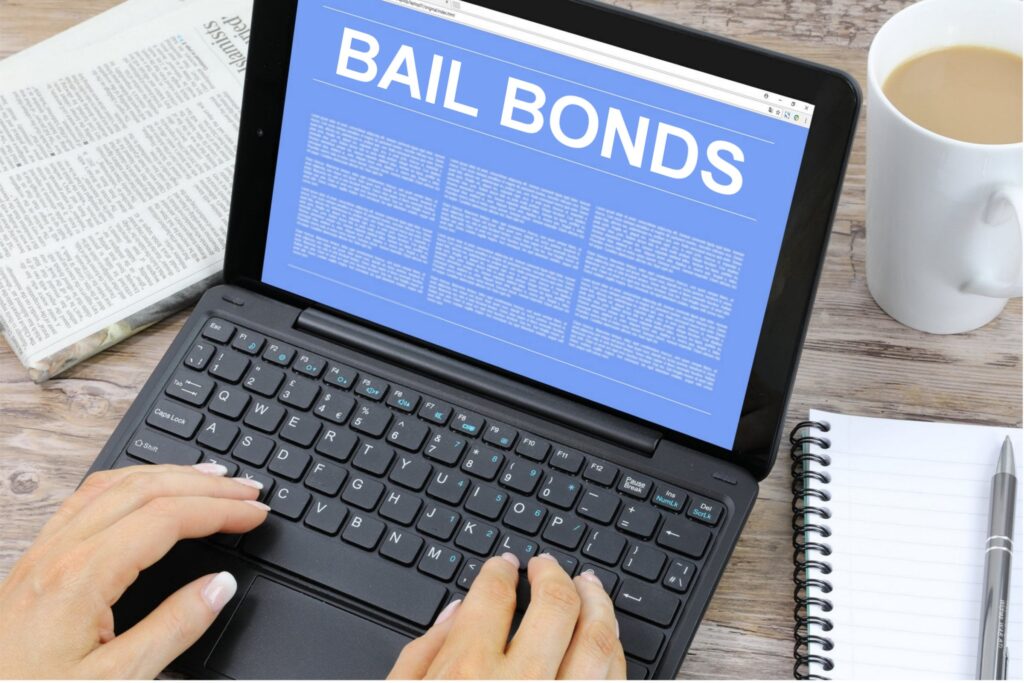If you’re looking for an answer to the question “How does a bail bonds work?”, you’ve come to the right place. Bail bonds can be an intimidating and confusing process, but knowing how they operate is essential if one finds themselves or their loved ones in need of legal services. This post will provide a comprehensive overview of what it takes to obtain and use a bail bond, from understanding the role of the bail bondsman to assessing financial options available through a bail bond company. If you’re somebody in search of information – whether they’ve been accused of committing a crime or know someone who has – this guide should help bring clarity and peace-of-mind while navigating this situation.
Contents
What is a bail bond?
A bail bond is an agreement between the court, the defendant (the person accused of a crime), and a surety company (a.k.a. bail bondsman) to release the accused from jail prior to trial on the condition that they will return for their court date as required by law. This arrangement allows individuals who would otherwise stay in jail until their trial to remain free in the community, as long as they abide by certain conditions (e.g. regularly checking in with their bail bondsman).

What are the different types of bail bond?
There are two types of bail bond: surety bonds and cash bonds. Surety bonds involve a third party, usually a licensed bail bondsman or insurance company, providing the court with a financial guarantee that the defendant will return for their court date and any other conditions imposed by the judge. Cash bonds involve posting the full amount of bail in cash up front; if the accused meets all conditions of their release, the money is typically returned at the end of the proceedings.
What are the conditions of a bail bond?
The conditions of a bail bond may vary from case to case, but typically involve restrictions on the individual’s travel and freedom. This includes requirements to regularly check in with their bail bondsman, abide by a curfew, or surrender any passports they possess. Breaking these conditions can result in revocation of the bond and immediate return to jail until the court date is reached. The conditions will be outlined in the agreement between the court, the accused, and the surety company or individual who provided bail.
How does a bail bonds work?
So, how does a bail bonds work? The bail bonds process begins when a judge sets the amount to be paid for the accused’s release. Once that’s been established, the individual or their family (or other third party) can contact a bail bondsman to arrange payment of the bond. The bail bondsman will typically charge between 10-15% of the total bond amount as their fee. This fee is non-refundable and due immediately in order to secure the bond. The bail bondsman will then provide a guarantee to the court that the accused will appear for their scheduled appearances or else forfeit the full amount of the bond, which can be collected from the guarantor (the surety company or individual who posted the bond). If all conditions are met, including appearing for court dates, the accused will be released from jail and can return to their normal life until their case is resolved.
How to apply for a bail bond?
The first step to obtaining a bail bond is finding a reputable surety company or individual who can provide the financial guarantee. This will likely involve some research and/or personal recommendations; it’s important to ensure you’re working with someone you trust. Once you’ve identified an appropriate guarantor, you can then begin the process of filling out all required paperwork and arranging payment of the bond.
How long does it take to set bail bond?
The amount of time it takes to set a bail bond varies depending on the severity and complexity of the case, but typically happens within 24 hours. After the judge has set an amount for the bond, the accused or their family can contact a bail bondsman to arrange payment and complete paperwork necessary for release. Once all documents are signed and fees paid, the bond is usually issued within a few hours, though more complicated cases may require additional paperwork or further review by the court.

What are the benefits of using a bail bond?
Using a bail bond is often the most cost-effective way to secure release from jail prior to trial. By paying only 10-15% of the total bond amount, individuals or their families/friends can get back to their normal lives faster and more economically than if they had to pay the full amount in cash. Additionally, using a bail bondsman ensures that any conditions set by the court are properly met, as the bondsman will monitor their client’s behavior and keep tabs on any travel they may be planning.
What are the risks of using a bail bond?
The primary risk of using a bail bond is that it requires posting or arranging for the full amount of the bond in case the accused fails to meet any conditions set by the court. This means that if the individual does not abide by all conditions set for their release, they can be immediately returned to jail and will forfeit the full amount of their bond. Additionally, individuals should be aware that bail bondsmen will typically charge a non-refundable fee of 10-15% for their services.

Conclusion: How does a bail bonds work?
A bail bond is an agreement between the court, the accused, and a surety company to release the accused from jail prior to trial on certain conditions. This arrangement allows individuals who would otherwise stay in jail until their trial to remain free in the community while abiding by all court-imposed restrictions. Obtaining a bail bond typically involves paying 10-15% of the total bond amount to a bail bondsman or insurance company, and paperwork must be completed in order to secure the bond. If all conditions are met, the accused will be released from jail and can return to their normal life until their case is resolved; however, if any of these conditions are broken then the full amount of the bond can be forfeited. Knowing how does a bail bonds work is essential for anyone who may need to post bond for someone else or themselves.
FAQ: Bail bonds
How do I renew my bail bond license?
Follow these steps during the even numbered years. Firstly, complete a renewal application and pay the license renewal fee. Secondly, fulfill the mandatory continuing education requirements as per North Carolina G.S. 58-71-75. This ensures that you are able to continue operating legally and with confidence.
What is the collateral for a bail bond?
Bail bond collateral refers to any asset that a bail bondsman can seize and sell in case the defendant violates the terms of the bail agreement. If the defendant doesn’t attend court on the scheduled date, and the bail bondsman fails to recover the bail amount from the court, they can demand repayment from the defendant using the seized collateral. Unraveling the nitty-gritty of a bail bond can help you make informed decisions during tough times.
What forms are needed to apply for a bail bond?
Attention all applicants. Streamline your bail bond application process with our convenient checklist of required forms. Simply complete the bail bond application and indemnity agreement, credit card authorization, unpaid premium agreement, and conditions of bail to ensure prompt processing of your request.
What if I can’t pay the bail bond?
Concerned about paying bail bond? Failure to pay bail may result in imprisonment. You may even be sent back to jail if released prior to bond payment. The responsibility of the bond agent affects the validity of your bail. If they relinquish it, escaping detention becomes a bigger challenge.
What is the largest bail bond ever made?
Discover the astounding record for the highest bail bond ever posted. In 2003, Robert Durst faced an unprecedented $3 billion bail, reflecting the severity of his alleged offenses and his potential to abscond.
Do I need a cosigner for a bail bond?
You may need a cosigner to ensure that your friend or relative attends their scheduled court date and pays fines promptly. By acting as a vouching party, a cosigner can help guarantee the defendant has the necessary support to stay on the right path and navigate the trial process successfully.
Can I get my money back after the bail bond is paid?
If you paid the court for bail, you may be wondering if you can get your money back. The answer is yes, but only if the defendant shows up for their court trial and proceedings. If the defendant fails to appear, you will not be reimbursed.
What is bail bond in the Philippines?
Bail bonds in the Philippines refers to the monetary or bond given to free an individual who has been held in custody by law enforcement. This ensures that the individual appears for their scheduled court appearance.
Can you go to jail for not paying bail bonds in California?
Are you aware that neglecting to pay bail bonds in California can result in incarceration? Bail bond agencies secure a surety bond with the courts on your behalf, assuring that the accused will appear at all court proceedings or face payment of the full cash bond. This obligation should not be taken lightly, as the repercussions of noncompliance are severe.
How much does a bail bond cost Texas?
Discover the cost of a bail bond in Texas. A trusted bail bond agent, operating in Texas, will submit a bond to the courts on your behalf. In return, they will require a nonrefundable fee equal to only 10% of the entire bail amount.

Trayce served as a grassroots leader and activist in Texas as President of Dallas and Texas Eagle Forum.
Trayce is Mom Caucus Member, Texas Conservative Mamas, Texas Conservative Grassroots Coalition Leader, and Grassroots America Champion of Freedom Honoree.
She currently serves as the Eagle Forum National Issues Chair on Human Trafficking.
Trayce received a Bachelor’s Degree in Marketing from Texas A&M
Currently, she homeschools her youngest child age 13 and graduated her six oldest children, ages 31 to 19.







